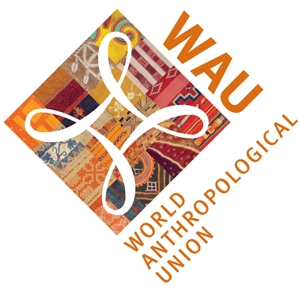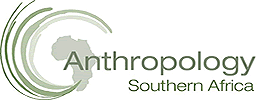African Association Presidents

Emmanuel k Ndiema
National Museums of Kenya
Vice President of Eastern Africa Association for Palaeoanthropology and Palaeontology (EAAPP)
Dr. Emmanuel K. Ndiema, an anthropological archaeologist, has devoted over two decades to in-depth research in the East Africa. With a primary focus on human cultural adaptations to climatic shifts over the past 10,000 years, he’s delved deeply into subsistence and land use among pastoralist communities. His groundbreaking studies on mobility in the Turkana Basin have been pivotal in interpreting human explorations of ancient terrains. Dr. Ndiema, always at the vanguard of archaeological and heritage studies, utilizes cutting-edge archaeological science techniques, expanding his investigations temporally and thematically. His notable research on human health and dispersals on water insecurity and ancient DNA analysis, has been published in eminent journals like Science.
Beyond academia, Dr. Ndiema champions heritage conservation in Kenya, intertwining it seamlessly with developmental projects, thereby ensuring both rapid implementation and exhaustive heritage evaluation. As an anthropologist with expansive training, his research particularly illuminates the pastoralists’ adaptability to climate-induced changes. Currently leading the Earth Sciences department, Dr. Ndiema’s leadership, community engagement, and collaborative efforts underscore his commitment to research that is both meaningful and impactful.

Paul Nchoji Nkwi
Founding member of the Pan African Association of Anthropologist (PAAA)
Catholic University of Cameroon, Bamenda/Constitutional Council of Cameroon
Born on October 13, 1940. After primary school in village in Njinikom, Kom, I did my secondary school, Sasse and went to study philosophy in Enugu, Nigeria and from there I went to pursue studies at the Pontifical Urban University, Rome, Italy which permitted me to be admitted into the Department of Ethnology of the University of Fribourg in 1976 where I worked as a teaching assistant before being hired as a Lecturer at University of Yaounde in 1976 and founded the disciplinary of anthropology at a time when anthropology had a bad name as the handmaiden of colonialism. In 1978 I organized the first conference of African Anthropologists , leading to the founding of the Pan African Association of Anthropologists, becoming the founding president: After teaching anthropology for 30 years, I was hired to be part of the team to create the Catholic University- of Cameroon and I again established a department of anthropology. After ten years of teaching of anthropology at the Catholic University of Cameroon, the President of the Republic of Cameroon appointed me as one of the 11 members of the Constitutional Council of Cameroon:

Hassen Chaabani
President of the Tunisian Association of Anthropology
University of Monastir, Tunisia/ Tunisian Association of Anthropology
Pr Dr Hassen Chaabani was born the 07 / 09 / 1947 in Tunis (Tunisia). He is Full University Professor in Human Genetics and Anthropology (University of Monastir, Tunisia). He was Director of Department from 1990 to 1996 (Faculty of Pharmacy of Monastir), Director of a Research Unit E12 / CO9 (in Human Biology), from 1996, then Director of a Research Unit entitled: “Biology and Molecular Anthropology applied to Development and Health” (until 2013). Many research works of Master and Doctorate were done under his management. He was Chairman of three International Conferences and has taken part in many other scientific and cultural meetings at the national and international scales. He is the Founder and the President of the “Tunisian Association of Anthropology”. He is the Founder and the Editor-in-Chief of the “International Journal of Modern Anthropology”. He wrote about 45 academic articles and two books. In 2014, he was awarded the honorary title of Professor Emeritus.

Ahmed Rebai
Vice President of the Tunisian Association of Anthropology
Centre of Biotechnology of Sfax
Dr. Ahmed Rebai received an engineer degree in Population Genetics in 1991 from the Institut National Agronomique de Paris-Grignon, France and his PhD from the same university in 1995 on population and quantitative genetics.
He carried on several studies in genetics anthropology on the North African and MENA populations, since 2003. He is member of the Tunisian Association of Anthropology since 2004, and currently its Vice-president. He is also editor of the International Journal of Modern Anthropology.
He is an expert member/evaluator/consultant in different national and international bodies concerned by African genomics (Data and Biospecimen Access Committee of the H3Africa, since 2016; College of experts of African Research Excellence Fund/UK, since 2020; Consultant for the Science for African Foundation, since 2022).
Dr Rebai was director of the Laboratory of Molecular and Cellular Screening Processes at the Centre of Biotechnology of Sfax (2009-2019). Since 2003 he has been leading a research group working on Human Genomics, including population genomics diversity. Dr. Rebai published more than 250 journal articles.
Dr Rebai was awarded the National Medal (4th category) of The Tunisian Republic in Science and Education in 2006.

Peter-Jazzy Ezeh
President of Ethnological and Anthropological Society of Nigeria
University of Nigeria, Nsukka
Peter-Jazzy Ezeh is Professor of Anthropology and formerly Head of the Department of Sociology and Anthropology, University of Nigeria, Nsukka. He was until recently the President Pan-African Anthropological Association (PAAA). He is also Fellow of Royal Anthropological Institute of Great Britain and Ireland (RAI), President of Ethnological and Anthropological Society of Nigeria (EASON), and Fellow of the Pan-African Circle of Artists (PACA). He studied the Orring of south-eastern Nigeria among whom he lived for his Master’s and PhD fieldwork, and also conducted participant observation among African immigrants in Austria. He has published widely and has a passion for qualitative fieldwork on which he has brought important innovations. With Professor Pat Uche Okpoko, he has published the book, Methods in Qualitative Research (Nsukka: University of Nigeria Press, 2020), which is now in its third edition. He has taught the courses, Ethnic and Inter-Group Relations, and Race and Ethnic Relations at the undergraduate and postgraduate levels in two universities in Nigeria. Professor Ezeh has a firm belief on the potency of anthropology in effective mediation in cross-cultural relations and other challenges of the present-day world.

W. Onyango-Ouma
Chair of Anthropological Association of Kenya
University of Nairobi
Prof Onyango-Ouma is the Chairman, Anthropological Association of Kenya (AAKe) and Research Director, Institute of Anthropology, Gender and African Studies, University of Nairobi, Kenya. He has over 20 years’ experience in teaching and research at University level. As an anthropologist he has an extensive background and experience in socio-behavioural research having directed and conducted formative and intervention research as well as multi-country and interdisciplinary studies on a range of topics including health communication, children and youth, school ethnography, anthropology of education, sexual and gender based violence among children, sexual and reproductive health, HIV/AIDS, TB, quality of health care, key populations (MSM and transgender), human resources for health, vaccine introduction, health service priority setting, policy analysis, cash transfers for OVC and social protection, among others. He has also published extensively in these areas of research.


